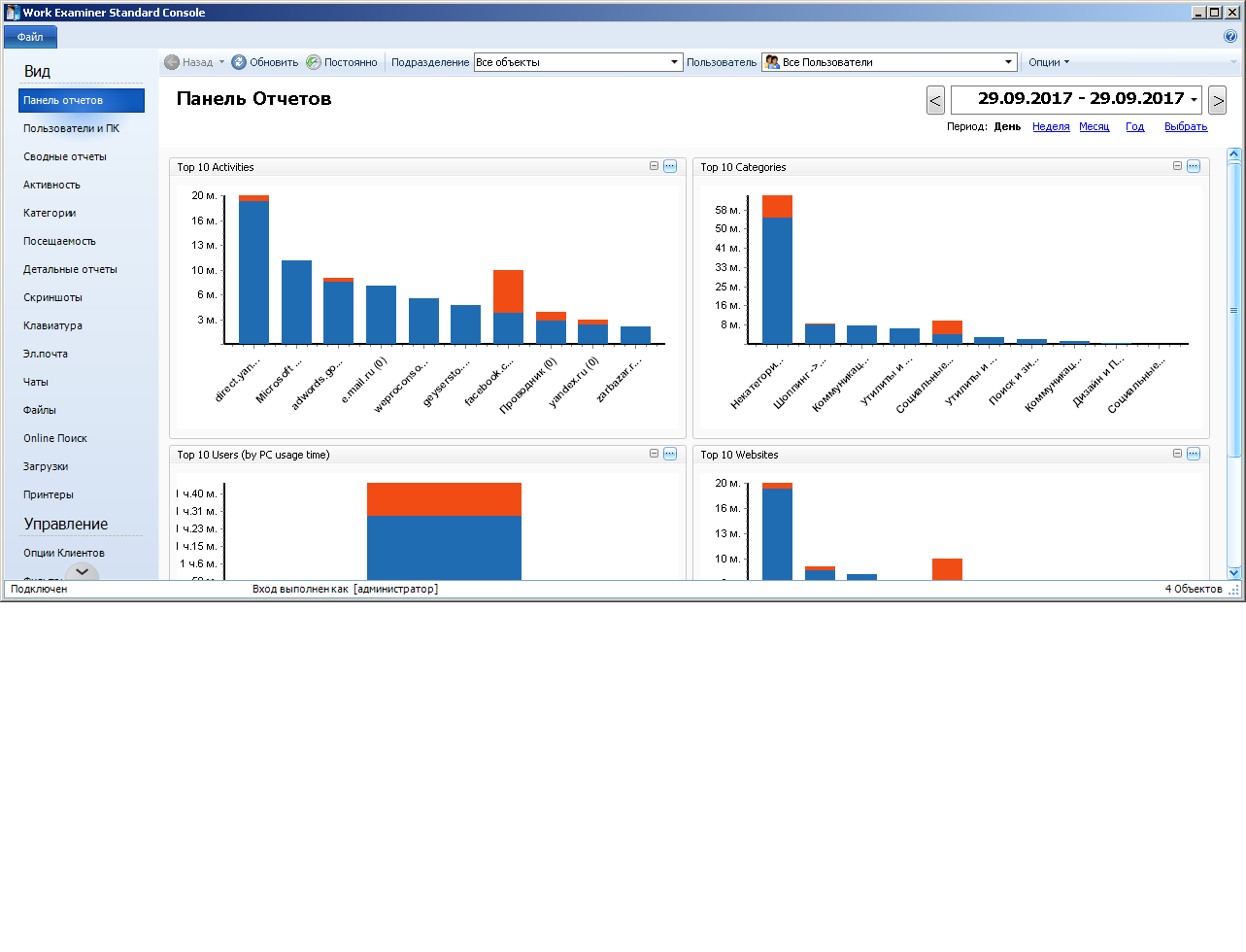
On Geektimes, there are periodically articles about the surveillance of employees by management. In terms of ethics, tools, law and other things. Let's define the main purpose for which this is done. To improve the efficiency of staff in the company. So, this also applies to managers.
In my opinion, it is simply impossible to determine in advance how much efficiency will increase. And putting employees before the fact is also not ice. Especially in small companies. Therefore, you need to experiment on yourself and show employees the results.
I once refused to work at home and rented an office. One. To create more correct in terms of the work environment. Many freelancers put in control programs for working time and turn off everything that distracts for working hours. And this is a good move.
Work computer should not be used for recreation. There is a smartphone, the ability to go out for a breath, go to a cafe for lunch, chat with colleagues. From the point of view of stress relief, a change of scenery works much better.
For example, I set myself a
Workexaminer and decided to collect monthly statistics for the time used. After all, he often does not understand where the precious time goes or why the sample task ate so many resources. A lot of small works are performed in a day, which I don’t remember.
What I studied:- The time spent on specific sites and applications;
- Separately, the time that I worked with paid software;
- Separately time on Youtube and social networks;
- The statistics of my search queries ;
- Simultaneous processes (for example, listening to music and working on articles);
- Project productivity based on time of day / season.
So, the conclusions:- It turned out that there is a certain seasonality in work efficiency. The experiment was replaced by a season from summer to autumn. For me in the autumn it is important to go to bed at least an hour earlier and wake up 20-30 minutes later, because otherwise, standard routine tasks require the same extra hour of time. So is not it better to sleep?);
- Music during complex tasks distracts me. This leads to errors and an overall increase in project time;
- I didn’t find any problems with search queries - all for work;
- I now visit social networks only during breaks, at lunchtime, and only on a smartphone, because they too often distract attention. I also deleted social networking apps from my smartphone due to constant notifications;
- Now I have accurate statistics (more precisely, than in CRM) of time expenses for each of the projects. This can be used to increase customer confidence in reports and more accurately calculate project costs;
- I cleaned a piece of useless software, understood whether it was worth buying new versions of some programs and increased the speed of the computer.
This is how properly built nutrition, only here the diet information.
What else turned out to be a good experiment: I took measurements without changing the daily routine and my habits. That is, first made the measurements, but on the basis of the changes.
Here is another important point: the changes must follow certain goals, that is, time must be released for something really important. Well, about the fact that the goals must be measurable / achievable, and so on, I’m not talking any more. The difference between “I need time for personal projects” and “I want to reduce the daily time spent on projects by 1 hour and go in for sports in a month” is endless.
How do you optimize your day?